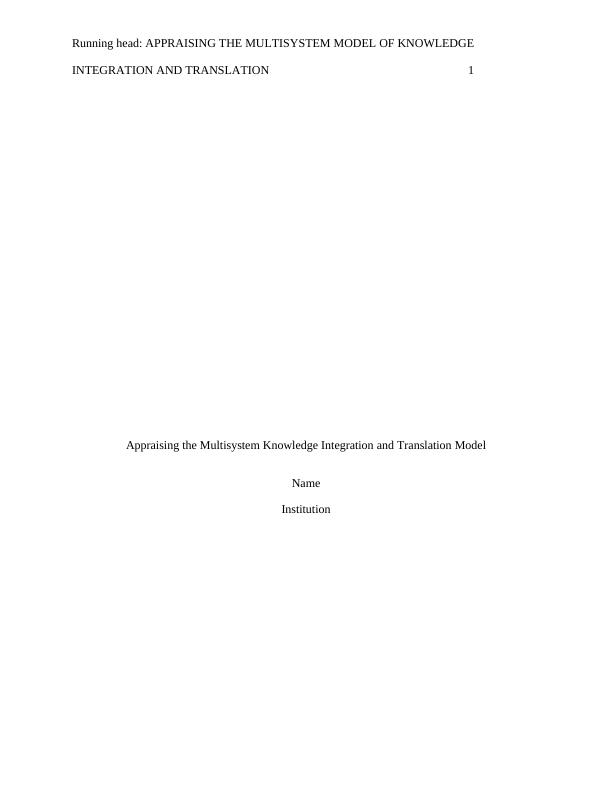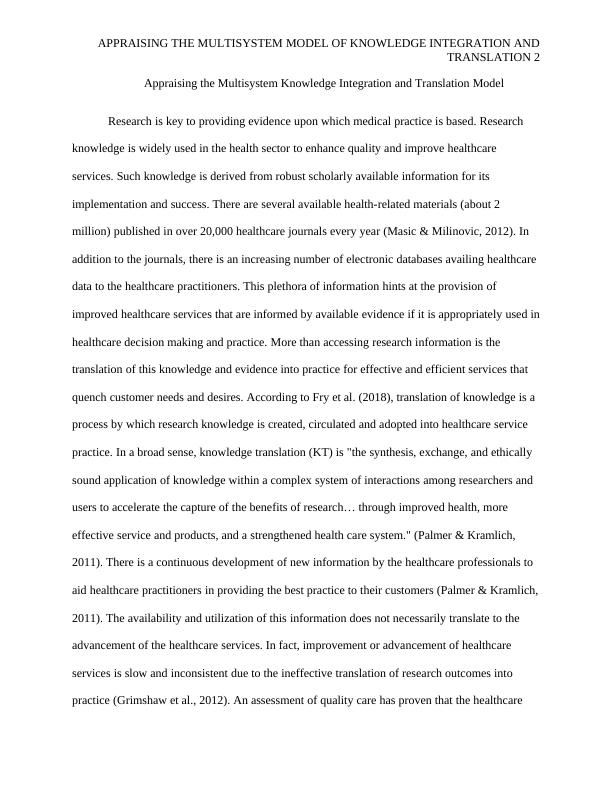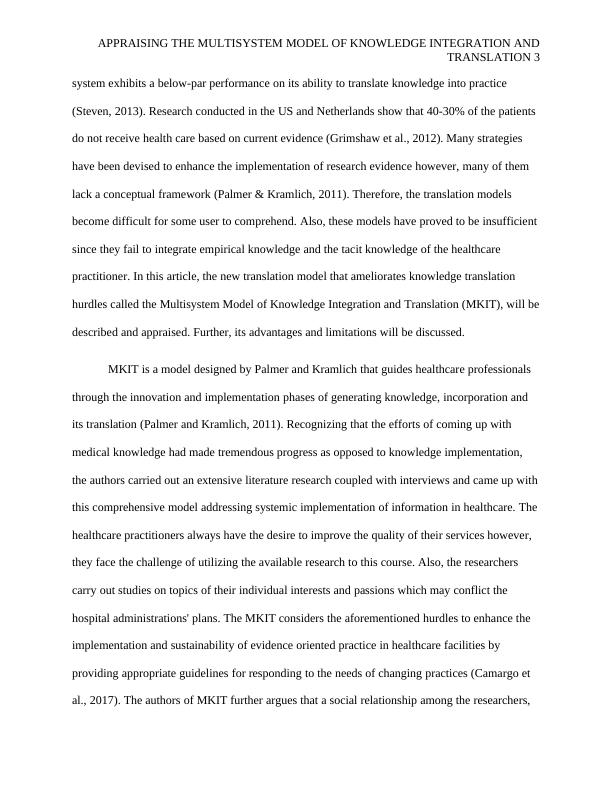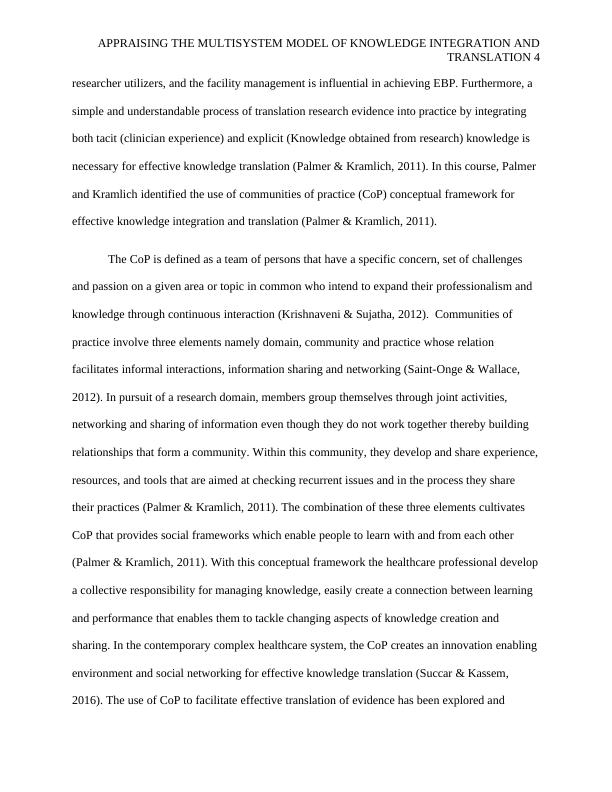The Multisystem Knowledge Integration and Translation Model
12 Pages3388 Words445 Views
Added on 2021-06-17
About This Document
7 APPRAISING THE MULTISYSTEM MODEL OF KNOWLEDGE INTEGRATION AND TRANSLATION 1 Appraising the Multisystem Knowledge Integration and Translation Model Name Institution Appraising the Multisystem Knowledge Integration and Translation Model Research is key to providing evidence upon which medical practice is based. In a broad sense, knowledge translation (KT) is "the synthesis, exchange, and ethically sound application of knowledge within a complex system of interactions among researchers and users to accelerate the capture of the benefits of research
The Multisystem Knowledge Integration and Translation Model
Added on 2021-06-17
ShareRelated Documents
End of preview
Want to access all the pages? Upload your documents or become a member.
IMPLEMENTING EBP PROJECTS.
|3
|473
|119
Health & Social Care In The Community Docx.
|9
|1919
|20
Assignment on Evidence Based Project
|4
|812
|18
NRSG367 Transition To Professional Nursing: Assignment
|10
|2193
|48
Change Model & Evidence-Based Intervention in Clinical Practice
|8
|1467
|78
Impact of Literature Review on Evidence-Based Health and Social Care Practices
|13
|3546
|174




